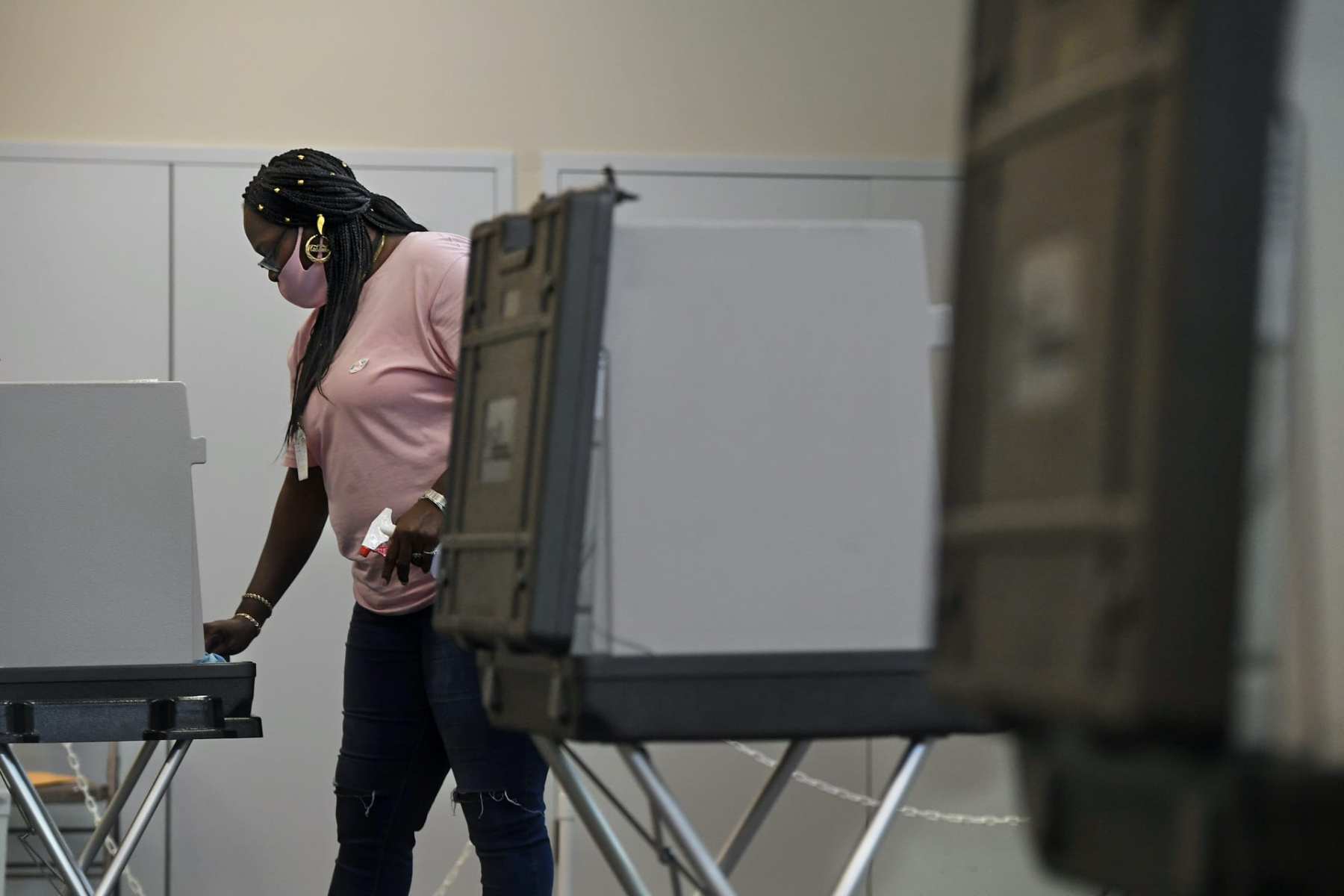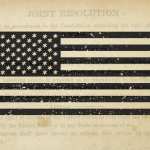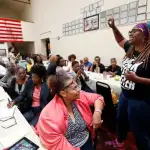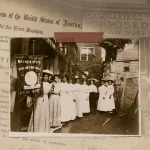As the 100th anniversary of women getting the right to vote approaches, there is a detail that often slips from the suffrage narrative: The milestone only extended to White women. Nikole Hannah-Jones, Pulitzer Prize-winning reporter for The New York Times Magazine and creator of the 1619 Project, joined The 19th Represents Summit Tuesday for a discussion that put that fact front and center.
“So we are not going to treat that ‘White’ as silent today,” Hannah-Jones said, kickstarting a panel discussion. Martha S. Jones, Alicia Garza and María Teresa Kumar joined Hannah-Jones, the moderator, to discuss several misconceptions surrounding the right to vote in the United States.
Jones, a professor of history at Johns Hopkins University, said there are several myths that need to be busted. Chiefly, that the 19th Amendment granted all women the right to vote.
Women faced many impediments even after the amendment’s ratification in 1920, based on age, nationality, residency and race. Throughout the South and in parts of the West, there were policies — polling taxes, literacy tests, grandfather clauses — and even violence that kept Black women from the polls, Jones said.
“We’re in a year where there are folks who would like to do a little more than celebrate, and that requires too often muting these stories and turning down the volume on the fact that racism runs through this movement in every chapter of the story, and ultimately leaves Black women to build their own movement for voting rights,” Jones said.
Another myth that Jones spoke about was the idea that Black women weren’t politically engaged. Even before 1920, Black women in some states, including California, Illinois and New York, were becoming part of party machines and building political power, she said.
After the 19th Amendment was ratified, Black women all over the country mobilized to “test the amendment,” Jones said. Some succeeded more than others. For example, nearly every Black woman registered to vote in St. Louis in 1920, but in Daytona, Florida, the Ku Klux Klan showed up to intimidate Black women away from the polls.
The Civil Rights movement paved the way for many Latinos, Native Americans and Asian Americans to access the ballot in 1975 when the Voting Rights Act was expanded, removing English language requirements, according to Kumar, the founding president of Voto Latino.
About 40 percent of the U.S. population are people of color. There are hundreds of millions of dollars spent every year to ensure these communities are not participating in elections by suppressing the ballot box, gutting the Voting Rights Act and spreading misinformation, Kumar said.
“It has taken a pandemic for us to open the eyes of the American public and recognize that the battle of a hundred years is very present at our doorstep, but we cannot be strong and continue to lead if we do not have the enfranchisement of the least among us,” Kumar said.
Garza, principal at the Black Futures Lab and co-creator of #BlackLivesMatter and the Black Lives Matter Global Network, said she has watched in recent months as the Black Lives Matter movement erupted into a multi-racial movement. That expansion is integral when building a multi-racial democracy, she said.
“As we are moving into 2020, into the most pivotal election cycle in my generation, we have an opportunity to say that we are going to coalesce around making sure that there are rights for everyone and that nobody gets left behind,” Garza said. “Not domestic workers. Not other essential and care workers. Not Black women. Not immigrant women.”
Garza argued that women shouldn’t ignore the differences in their communities, but instead investigate them to better understand how white supremacy has created conditions that keep minority groups apart.
“I think what’s clear to us now, four months into this thing, is that there’s not a normal that we are going to go back to, and frankly things were not great before the pandemic,” Garza said. “Frankly, what we’re able to do in this moment that we maybe weren’t as well positioned to do four months ago is use the opportunity of crisis to actually usher in a new way of being with each other.”





